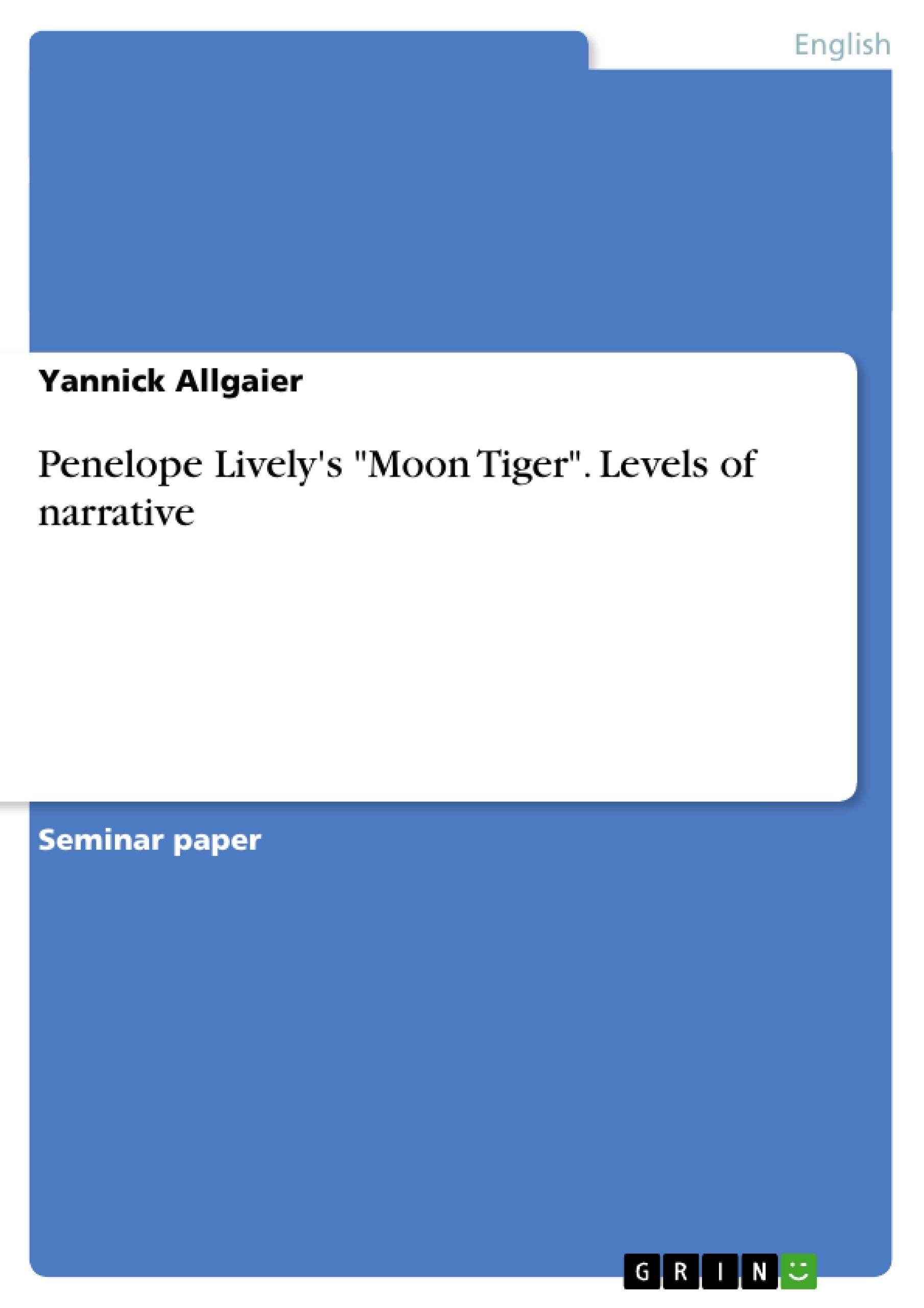Die Hausarbeit soll dem Leser am Beispiel des Werkes die verschiedenen Ebenen der Fokalisation etc. näherbringen.
Inhaltsverzeichnis (Table of Contents)
- Introduction
- Analysis
- Hospital Episodes
- Claudia's Interior Monologue
- The Flashbacks
- Tom's Diary
- Interpretation
Zielsetzung und Themenschwerpunkte (Objectives and Key Themes)
This analysis of Penelope Lively's novel Moon Tiger aims to explore the complex narrative structure and the dominant role of the protagonist, Claudia Hampton, in shaping the story. Through examining the various levels of narration and the specific focalisations within them, the analysis seeks to understand how Claudia's subjective memories and perspectives influence the reader's understanding of the events and characters.
- Narrative Structure and Levels of Narration
- Claudia's Dominance in Shaping the Narrative
- The Subjectivity of Memory and Perspective
- Claudia's Unfavorable Portrayal of Other Characters
- Feminist Themes and Gender Roles
Zusammenfassung der Kapitel (Chapter Summaries)
The analysis begins by dissecting the multiple levels of narration in the novel. The hospital episodes, where Claudia lies remembering her life, constitute the extradiegetic level. Claudia's interior monologue, containing flashbacks and Tom's diary, represents the intradiegetic level. Each level employs specific focalisations, highlighting the subjective nature of Claudia's memories and her dominance in shaping the narrative.
The interpretation focuses on Claudia's claim of being a liberal storyteller who allows other voices to speak. By examining specific flashback scenes, the analysis reveals how Claudia subtly manipulates and alters the words and actions of other characters, highlighting her egocentric approach to storytelling. The analysis also explores how Claudia's unfavorable portrayal of other characters, particularly female figures, contributes to the feminist themes of the novel.
Schlüsselwörter (Keywords)
The analysis of Moon Tiger focuses on narrative structure, levels of narration, focalisations, subjectivity of memory, egocentric storytelling, feminist themes, and character portrayal. Key concepts include the theories of Gérard Genette and Stanzel's concept of figural narrative situations. The analysis explores the relationship between Claudia's personality and her portrayal of other characters.
Frequently Asked Questions
What is the central theme of Penelope Lively's "Moon Tiger"?
The novel explores the subjectivity of memory and history through the perspective of Claudia Hampton, a historian who reconstructs her life while lying in a hospital bed.
What are the different levels of narration in the book?
The analysis identifies an extradiegetic level (hospital episodes) and an intradiegetic level (interior monologues, flashbacks, and Tom's diary).
Is Claudia Hampton a reliable narrator?
The analysis suggests she is egocentric. While she claims to allow other voices to speak, she often manipulates the portrayal of other characters to suit her own perspective.
How does the novel address gender roles?
Through Claudia's often unfavorable portrayal of other women and her own unconventional life, the novel explores feminist themes and the struggle for female intellectual dominance.
What literary theories are used to analyze the novel?
The work utilizes Gérard Genette's theories on focalisation and levels of narration, as well as Stanzel's concept of figural narrative situations.
- Citation du texte
- Yannick Allgaier (Auteur), 2013, Penelope Lively's "Moon Tiger". Levels of narrative, Munich, GRIN Verlag, https://www.grin.com/document/271320



